Safely Clean with Essential Oils
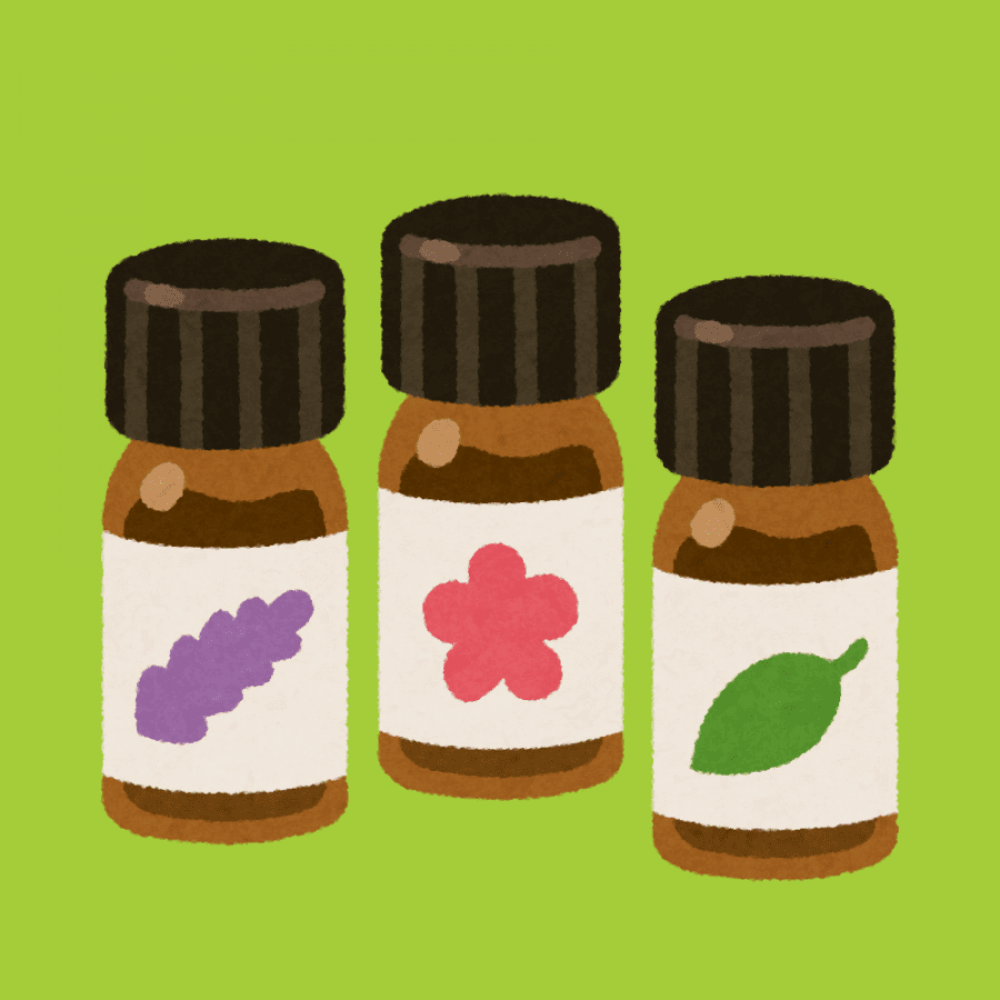
Cleaning your home is an essential task to maintain a healthy and comfortable living environment. However, many conventional cleaning products contain harsh chemicals that can be harmful to your health and the environment. That’s where essential oils come in. These natural plant extracts have powerful antibacterial, antifungal, and antiviral properties that make them effective cleaners. Not only do they provide a natural alternative to traditional cleaning products, but they also offer a wide range of benefits, from refreshing scents to therapeutic effects.
Using essential oils for cleaning is not only safe but also cost-effective. You can create your own cleaning solutions using simple ingredients like vinegar, baking soda, and water, along with a few drops of essential oil. Whether you want to disinfect surfaces, eliminate odors, or remove sticky residue, essential oils can do the job effectively. In this blog, we will explore the world of essential oils and how you can safely and effectively use them to clean your home.
Understanding Essential Oils for Cleaning
Essential oils are highly concentrated compounds extracted from plants. They contain the natural compounds that give plants their characteristic scents and flavors. When it comes to cleaning, essential oils have several properties that make them effective cleaners. They have antibacterial, antifungal, and antiviral properties, which means they can kill germs and prevent the growth of mold and mildew. They also have solvent properties, which make them effective at breaking down grease and grime. Tea tree oil and citrus oils, such as lemon and orange oil, are particularly known for their cleaning properties.
What Makes Essential Oils Effective Cleaners?
Essential oils are not only natural but also highly effective cleaners. One of the key reasons for their effectiveness is their solvent properties. Solvents are substances that can dissolve other substances, such as grease and grime. Tea tree oil, for example, contains terpenes, which are organic compounds that act as solvents. This makes tea tree oil an excellent cleaner for removing tough stains and dirt.
Citrus oils, such as lemon and orange oil, are also popular choices for cleaning. They contain high levels of limonene, a compound known for its solvent properties. Limonene can break down grease and grime, making it ideal for cleaning kitchen surfaces and appliances.
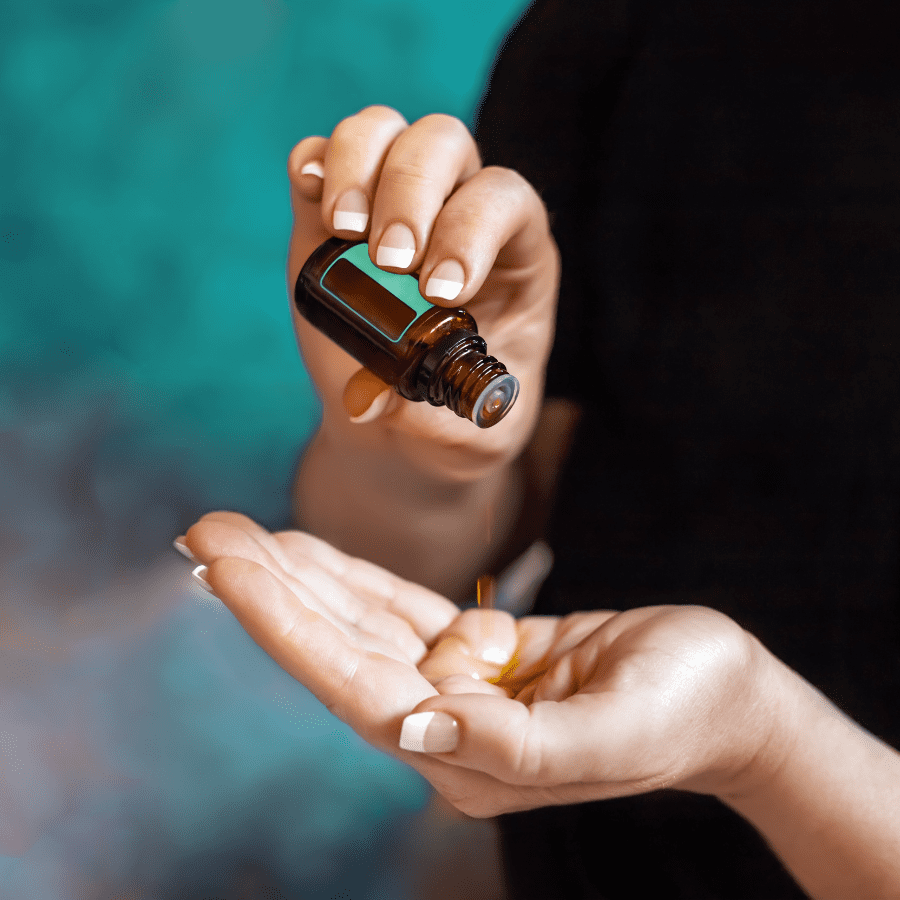
In addition to their solvent properties, essential oils also have antibacterial properties. Many essential oils, including tea tree oil and lavender oil, have been shown to have antimicrobial activity against a wide range of bacteria. This makes them effective at killing germs and preventing the spread of infections.
Overall, the solvent and antibacterial properties of essential oils make them a natural and effective choice for cleaning your home.
The Top Essential Oils for Disinfecting and Freshening Your Home
When it comes to disinfecting and freshening your home, there are several essential oils that are particularly effective. Tea tree oil, for example, is known for its powerful antimicrobial properties. It has been shown to kill a wide range of bacteria, including those that cause common household illnesses like the flu and colds. Eucalyptus oil is another great choice for disinfecting your home. It has antimicrobial and antiviral properties that can help prevent the spread of germs. Other essential oils, such as lavender and lemon oil, also have antimicrobial properties and can help create a clean and fresh-smelling environment in your home.
Beginner’s Guide to Using Essential Oils Safely in Your Home
Using essential oils safely is important to ensure that you get the maximum benefits without any negative side effects. Here are a few guidelines to follow when using essential oils for cleaning:
- Always dilute essential oils before use. Most oils should be diluted with a carrier oil or water to avoid skin irritation.
- Test a small area before using essential oils on surfaces or fabrics. Some oils may stain or damage certain materials.
- Keep essential oils out of reach of children and pets. Some oils can be toxic if ingested.
- Follow proper storage guidelines to maintain the quality of your essential oils. Store them in a cool, dark place away from direct sunlight.
- If you have any specific health concerns or are pregnant or nursing, consult with a healthcare professional before using essential oils.
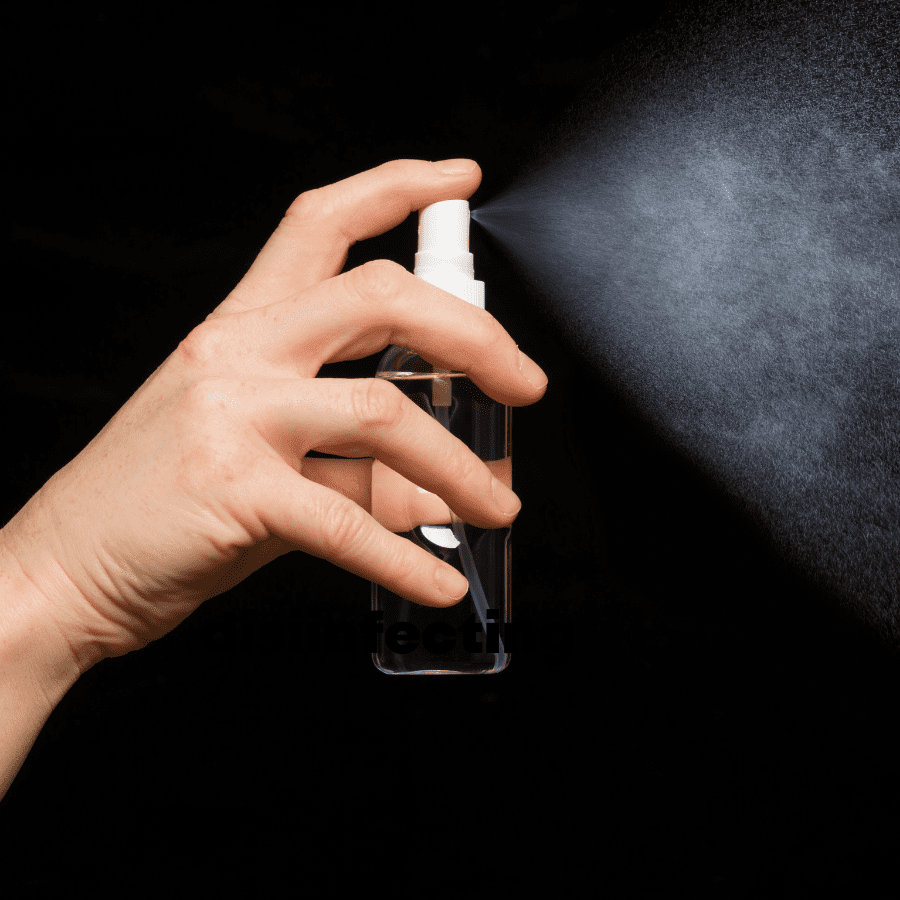
Step-by-Step Guide to Creating Your First Essential Oil Cleaning Solution
Creating your own essential oil cleaning solution is easy and cost-effective. Here’s a step-by-step guide to get you started:
Step 1: Choosing Your Essential Oils
Select essential oils that have cleaning properties, such as lemon, lavender, or tea tree oil. These oils are known for their antibacterial and antimicrobial properties.
Step 2: Mixing Essential Oils with Safe Carrier Liquids
Dilute the essential oils with a carrier liquid, such as water or vinegar. The ratio of essential oil to carrier liquid will depend on the recipe you’re using. Check out our blog on cleaning with vinegar for a super simple recipe!
Step 3: Testing the Solution on Surfaces
Before using the solution on a larger area, test it on a small, inconspicuous spot to ensure it doesn’t cause any damage or discoloration.
Step 4: Using the Solution for Different Cleaning Needs
Use the solution to clean various surfaces in your home, such as countertops, floors, and bathroom fixtures. Adjust the concentration of the solution based on the cleaning task.
By following these steps, you’ll be able to create your first essential oil cleaning solution and start enjoying the benefits of natural cleaning.
Step 1: Choosing Your Essential Oils
Choosing the right essential oils is key to creating effective cleaning solutions. Here are some of the best essential oils for cleaning:
- Lemon oil: Lemon oil is known for its powerful cleaning properties. It has antibacterial and antiviral properties that make it effective at killing germs and disinfecting surfaces. It also has a fresh and uplifting scent, making it a popular choice for cleaning products.
- Lavender oil: Lavender oil not only has a calming scent but also has antibacterial properties. It can help eliminate odors and freshen up your home.
- Tea tree oil: Tea tree oil is a powerful natural disinfectant. It has antimicrobial properties that make it effective at killing bacteria, viruses, and fungi. It can be used to clean and disinfect surfaces, as well as for treating minor cuts and scrapes.
- Eucalyptus oil: Eucalyptus oil has a fresh and invigorating scent. It has antimicrobial properties that make it effective at killing germs and disinfecting surfaces. It can also help repel insects and deodorize your home.
These essential oils can be used individually or in combination to create effective cleaning solutions for your home.
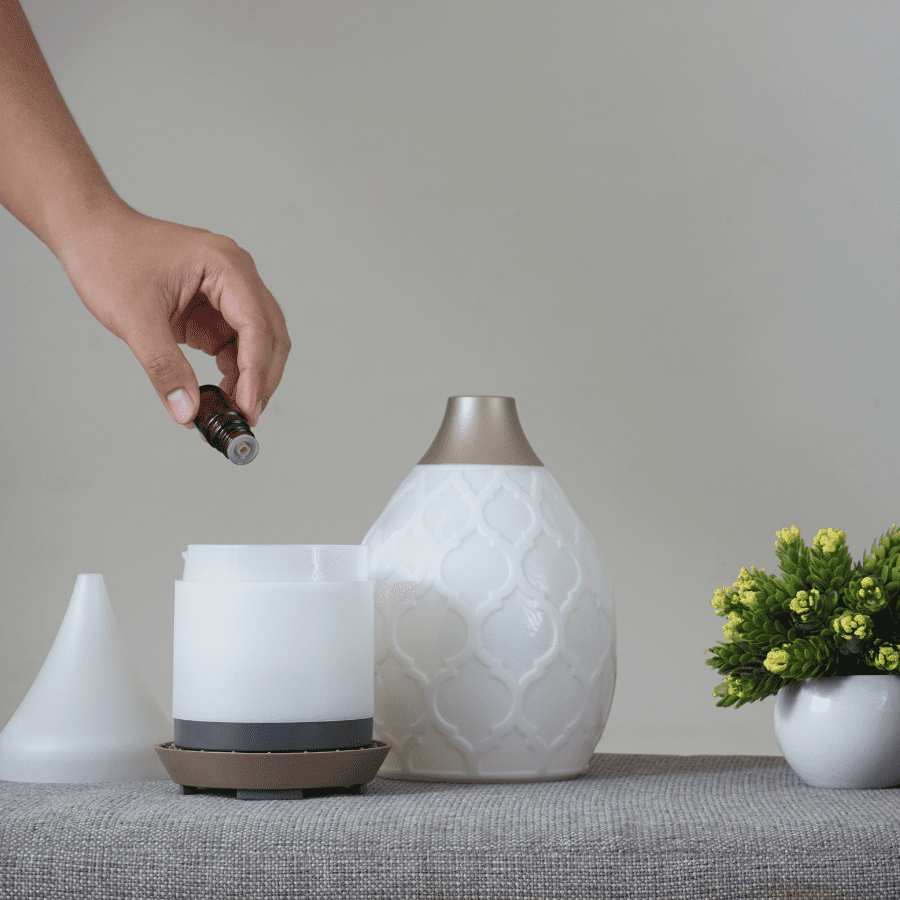
Step 2: Mixing Essential Oils with Safe Carrier Liquids
Once you have chosen your essential oils, it’s time to mix them with safe carrier liquids. Carrier liquids are used to dilute the essential oils and make them safe to use on surfaces. Here are some common carrier liquids that you can use:
- Water: Water is the most common carrier liquid used in cleaning solutions. It is safe to use and readily available. You can mix essential oils with water in a spray bottle to create a simple and effective cleaning solution.
- Vinegar: Vinegar is another popular carrier liquid for cleaning solutions. It has natural antibacterial properties and can help remove stains and odors. Mix essential oils with vinegar and water for a powerful and natural cleaning solution.
- Olive oil: Olive oil can be used as a carrier liquid for creating furniture polish or wood cleaner. Mix essential oils with olive oil to create a natural and effective cleaner for wood surfaces.
- Alcohol: Rubbing alcohol or vodka can be used as a carrier liquid for disinfecting solutions. Mix essential oils with alcohol to create a powerful disinfectant spray.
Experiment with different carrier liquids to find the one that works best for your cleaning needs.

Step 3: Testing the Solution on Surfaces
Before using your essential oil cleaning solution on larger surfaces, it’s important to test it on a small, inconspicuous area. This will ensure that the solution doesn’t cause any damage or discoloration. To test the solution, choose a small area that is not easily visible, such as a corner or underside of a surface, apply a small amount of the solution to the test area using a cloth or sponge, allow the solution to sit on the surface for a few moments then gently wipe it away and check for any damage or discoloration.
If the test area shows no signs of damage, you can proceed to use the solution on larger surfaces. If there is any damage or discoloration, adjust the concentration of the solution or try a different cleaning method.
Step 4: Using the Solution for Different Cleaning Needs
Once you have tested the solution and found it to be safe for use, you can start using it for different cleaning tasks. Here are some examples of how you can use your essential oil cleaning solution:
- Grease removal: Use your solution to clean greasy surfaces, such as kitchen countertops or stove tops. The natural solvents in essential oils can help break down grease and leave surfaces clean and shiny.
- Mold and mildew removal: Essential oils like tea tree oil and eucalyptus oil have antifungal properties that make them effective at removing mold and mildew. Use your solution to clean bathroom tiles or other areas prone to mold and mildew growth.
- Odor elimination: Essential oils have natural deodorizing properties. Use your solution to freshen up carpets, upholstery, or other areas that may have unpleasant odors.
- Stain removal: Some essential oils, like lemon oil, can help remove stains from fabrics or surfaces. Use your solution to treat stains before laundering or wiping away.
By using your essential oil cleaning solution for different cleaning needs, you can enjoy a fresh and clean home without the use of harsh chemicals.
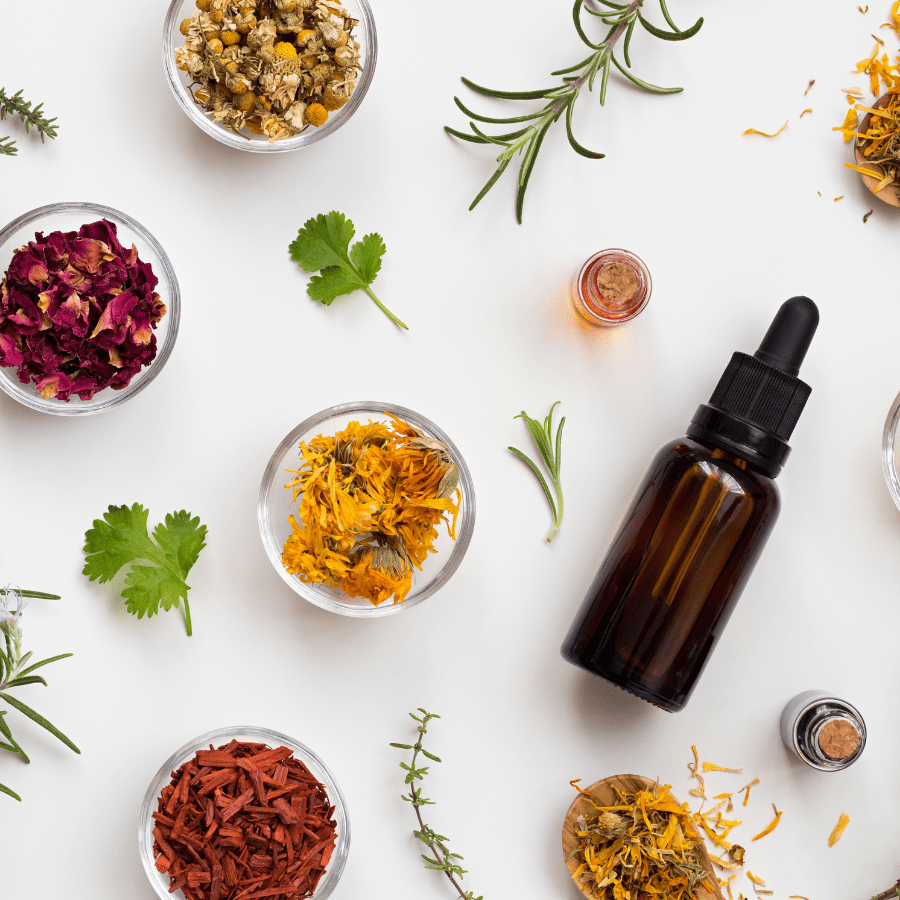
Tips for Enhancing Cleaning Efficiency with Essential Oils
Incorporating essential oils into your cleaning routine can enhance the efficiency and effectiveness of your cleaning efforts. Here are a few great blends to create the perfect smellscape for your home.
- Eucalyptus and rosemary: The combination of eucalyptus and rosemary essential oils creates a powerful antibacterial and antiviral blend. It can help kill germs and bacteria on surfaces, making it ideal for cleaning kitchen and bathroom areas.
- Lemon and tea tree: Lemon essential oil is known for its fresh scent and grease-cutting properties, while tea tree essential oil has strong antifungal and antibacterial properties. Together, they create a powerful cleaning blend that can tackle tough stains and eliminate odors.
- Lavender and peppermint: Lavender essential oil is known for its calming properties, while peppermint essential oil has a refreshing and uplifting scent. This combination can create a pleasant and energizing atmosphere while cleaning.
- Spring mix: Combine lemongrass, lavender, and citrus essential oils for a refreshing and invigorating blend. This mix can help uplift your mood and bring a sense of renewal to your space.
- Summer mix: Blend citrus essential oils like orange, lemon, and grapefruit with a hint of peppermint for a cooling and energizing aroma. This mix can create a refreshing atmosphere during the hot summer months.
- Fall mix: Combine cedarwood, cinnamon, and clove essential oils for a warm and cozy blend. This mix can evoke the comforting scents of autumn and create a cozy ambiance in your home.
- Winter mix: Blend pine, eucalyptus, and peppermint essential oils for a fresh and invigorating scent. This mix can bring the crispness of winter into your space and create a refreshing atmosphere.
Experiment with different ratios and adjust the blends to your preference. These mixes can be diffused or added to DIY cleaning products to infuse your home with delightful scents all year round.
Safety and Precautionary Measures When Cleaning with Essential Oils
While using essential oils for cleaning can be safe and effective, it’s important to follow some safety measures and precautions to ensure a positive experience. Here are a few guidelines to keep in mind:
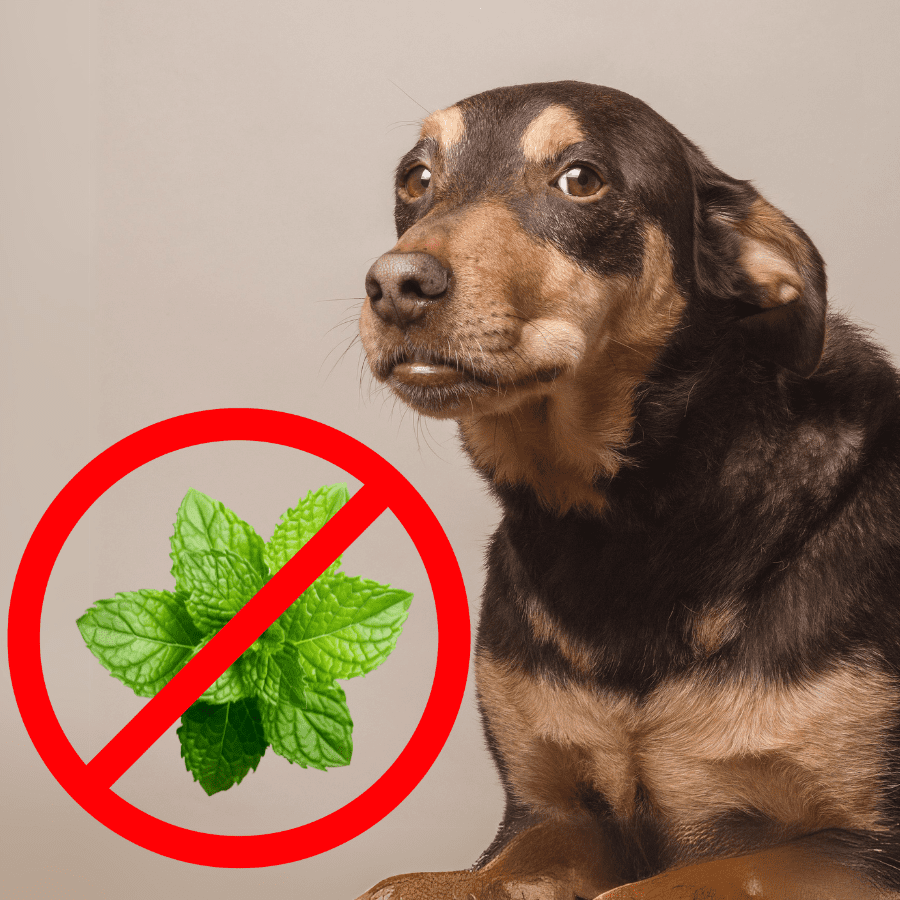
- Dilute essential oils properly: Essential oils are highly concentrated and should always be diluted before use. Follow recommended dilution ratios to avoid any skin irritation or sensitization.
- Keep essential oils out of reach of pets and children: Some essential oils can be toxic to pets and children if ingested. Store them in a safe place where they cannot be accessed by curious hands or paws. Peppermint is specifically dangerous for pets and should not be diffused or used in areas that they are often in.
- Test a small area before using: Before using essential oils on surfaces, fabrics, or furniture, test a small area to ensure compatibility and avoid any damage.
- Follow usage guidelines: Each essential oil has specific usage guidelines. Some oils are not safe for certain surfaces or should be avoided during pregnancy or for individuals with specific health conditions. Familiarize yourself with the guidelines for each oil you use.
By following these safety measures, you can enjoy the benefits of cleaning with essential oils while keeping your home and loved ones safe.
Essential Oils to Avoid on Certain Surfaces
While essential oils can be effective for cleaning, there are some oils that should be avoided on certain surfaces. Citrus essential oils like lemon and orange can have a strong solvent effect on certain types of wood. They can strip away the finish and cause damage. It’s best to avoid using citrus oils directly on wood surfaces. Some wood oils, like cedarwood or pine, can have a strong scent that may be overpowering on delicate surfaces like fabrics, carpets, or upholstery. It’s important to test a small area before using these oils on such surfaces. Some delicate surfaces may require special care and caution when using essential oils. It’s always best to check the recommendations for specific surfaces and do a patch test before using any essential oils for cleaning. By being mindful of the potential effects of essential oils on different surfaces, you can avoid any damage and keep your home clean and safe.
Keeping Your Pets Safe Around Essential Oil Cleaners
When using essential oils for cleaning, it’s important to consider the safety of your pets. Here are a few tips to keep your pets safe:
- Avoid using essential oils directly on pets: While some essential oils can be beneficial for pets when used properly, it’s best to avoid applying them directly to their fur or skin. Consult with a veterinarian for safe use guidelines.
- Keep essential oil cleaners out of reach: Store your essential oil cleaners in a place where pets cannot access them. Ingesting certain essential oils can be toxic to pets.
- Diffuse oils in well-ventilated areas: If you use essential oils for aromatherapy while cleaning, make sure the area is well-ventilated to prevent any respiratory issues for your pets.
- Monitor your pet’s behavior: If you notice any signs of discomfort or illness in your pet after using essential oil cleaners, consult with a veterinarian.
By taking these precautions, you can enjoy the benefits of cleaning with essential oils while ensuring your pets’ safety.
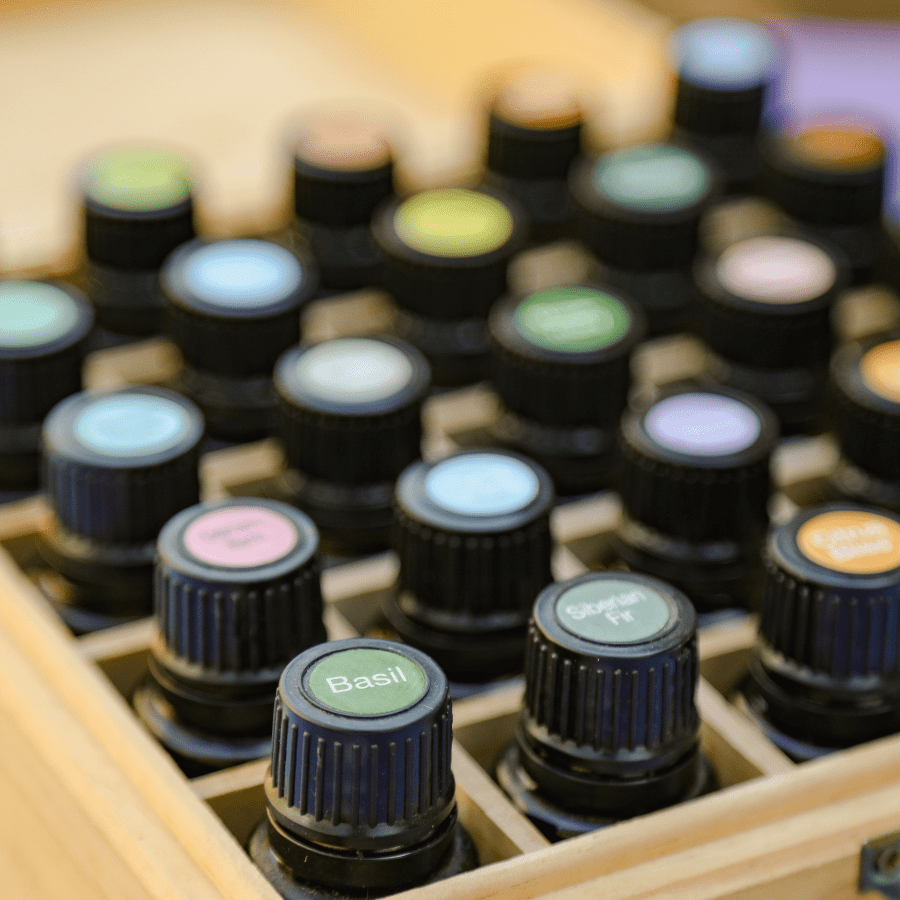
Conclusion
In summary, cleaning with essential oils is a safe and effective way to maintain a fresh and healthy home environment. Understanding the properties of essential oils and how to use them correctly can transform your cleaning routine. From disinfecting surfaces to creating natural air fresheners, essential oils offer a versatile and eco-friendly solution. Remember to always follow safety guidelines and choose quality oils for optimal results. By incorporating essential oils into your cleaning regimen, you not only promote a toxin-free space but also enjoy the therapeutic benefits of aromatherapy. Embrace the power of nature in your cleaning practices for a greener and healthier home.
Frequently Asked Questions
Can I use essential oils in my laundry?
Yes, you can use essential oils in your laundry to add a natural fragrance to your clothes. Add a few drops of your preferred essential oil, such as lavender or eucalyptus, to the fabric softener dispenser or a dry washcloth and toss it in the dryer with your clothes. This will leave your laundry smelling fresh without the use of synthetic fragrances.